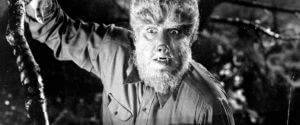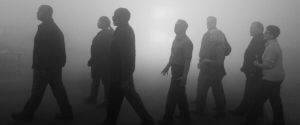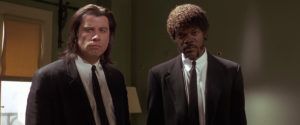Dear Readers,

How strange that the The Wolf Man, released by Universal Pictures in 1941, contains no monster at all. Certainly Lon Chaney Jr. endured hours in the makeup chair so that his character, Larry Talbot, w...

Much has been put forward about Martin Scorsese’s Taxi Driver and its meaning. Travis Bickle, Robert De Niro’s loner New York City cabbie, has been called an attack on the failed deliverance promised ...

City Lights may be Charles Chaplin’s most personal motion picture, or perhaps the film’s heightened measure of emotion just makes it feel that way. Where else except someplace dear could a filmmaker d...

Steven Spielberg’s Minority Report realizes the full potential of author Philip K. Dick’s science-fiction worldview, a perspective filled with dangerous technology, feverish paranoia, and metaphysical...

Fear of the Unknown. Horror has long contemplated the relationship between that which lurks in the darkness and the fear thereof. While the genre often attempts to illuminate unseen terrors in monster...

When unveiled to its patrons in the civic militia guard, Rembrandt van Rijn’s The Night Watch receives scolding laughter and protests that noblemen were depicted so shamefully, that several of the por...

Cinema was never the same after Quentin Tarantino’s breakout hit.

Ingmar Bergman’s Fanny and Alexander regards family through the curious, innocent eyes of a child, observing its illusions and relating its painful truths. The filmmaker equates family and adulthood t...

Samuel Fuller made films about survivors. Whether they tromped through the perils of war and came out alive or faced up against one of society’s more menacing social problems, his brand of hard-boiled...